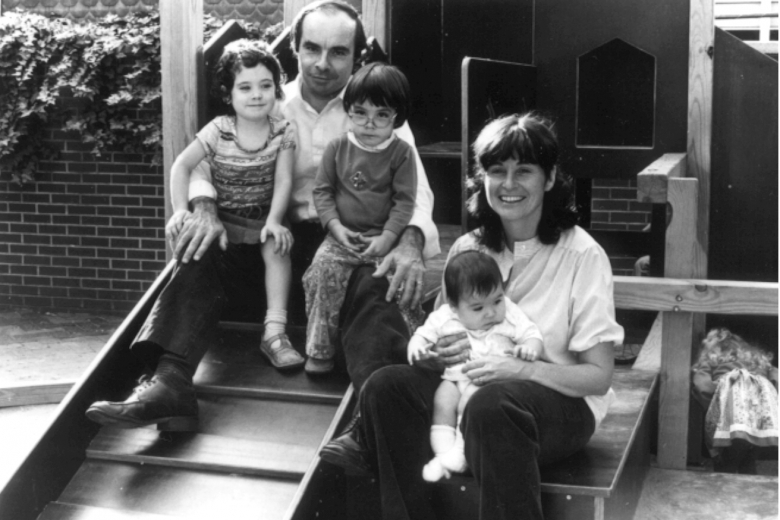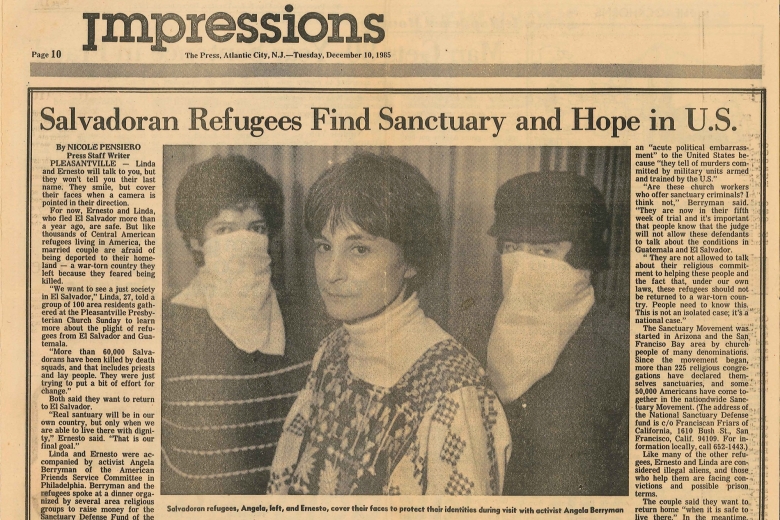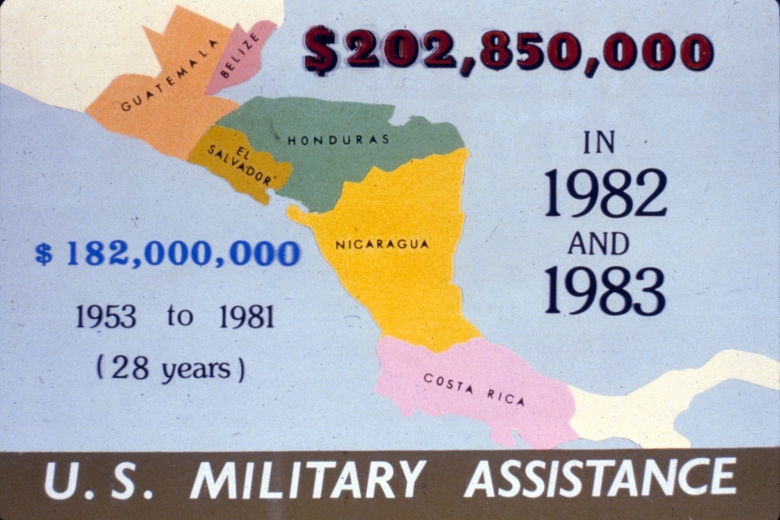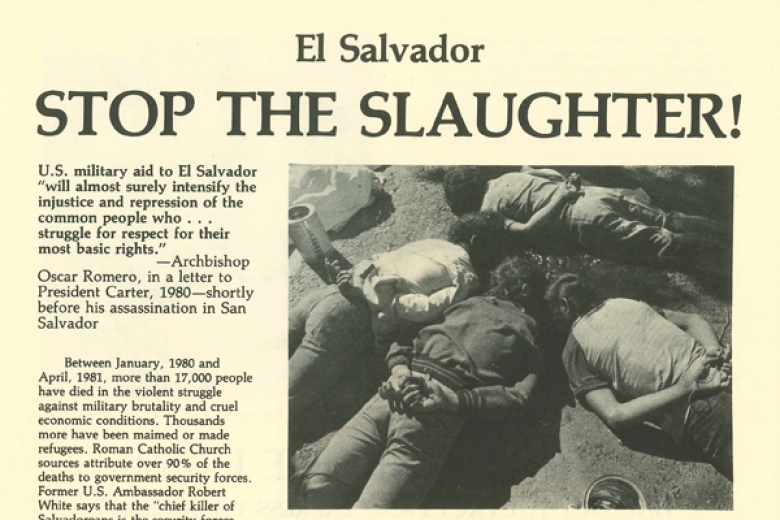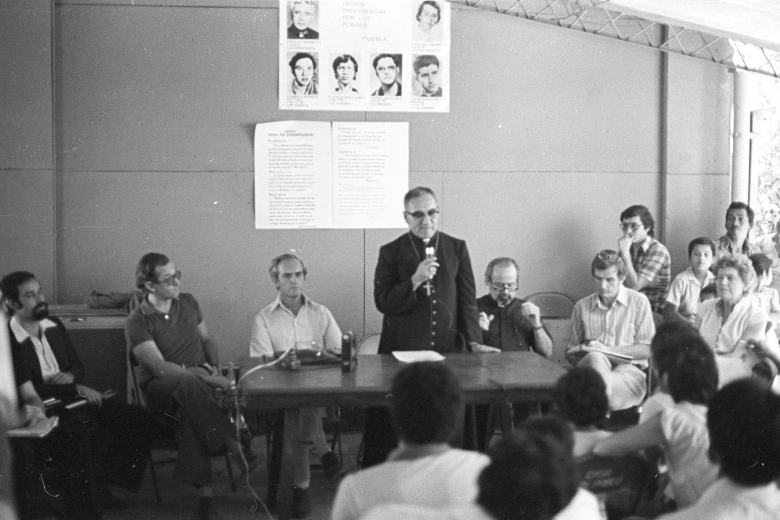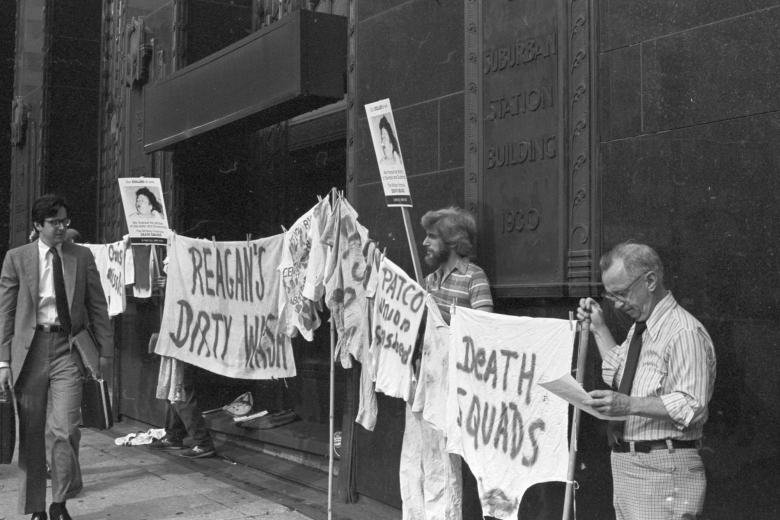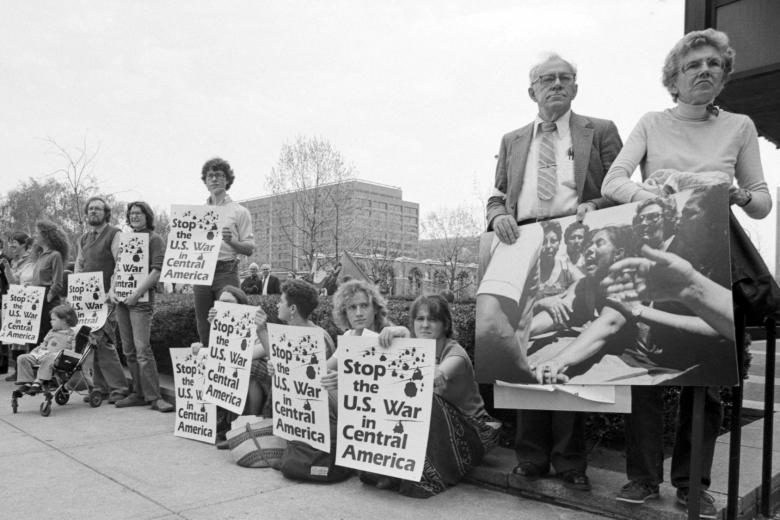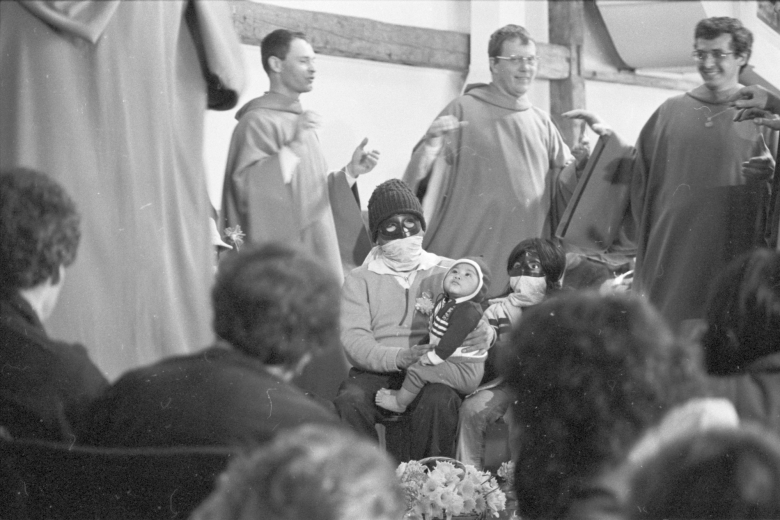When popular movements rose up in Central America in the 1970s and ‘80s, the response from their governments was brutal: torture, disappearances, and death squads. At first, the violence was poorly reported in the U.S., so AFSC put staff on the ground to uncover the truth and reveal the impact of U.S. involvement in the region.
Faith communities in the U.S. began offering sanctuary to refugees fleeing the violence, and AFSC played an important role in facilitating those efforts. We contributed energy from our national headquarters and nine regional offices, plus lobbying capabilities in Washington, D.C. We also helped launch key anti-war efforts such as the Pledge of Resistance, and worked to create bridges between faith-based and activist groups.
Our education units produced widely used materials on the roots of the conflict, the refugee crisis, and the role of U. S. military aid and training.


